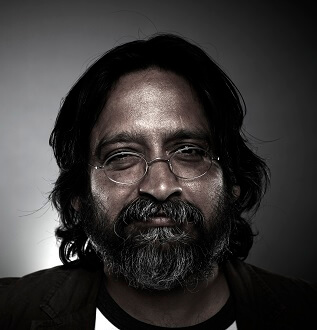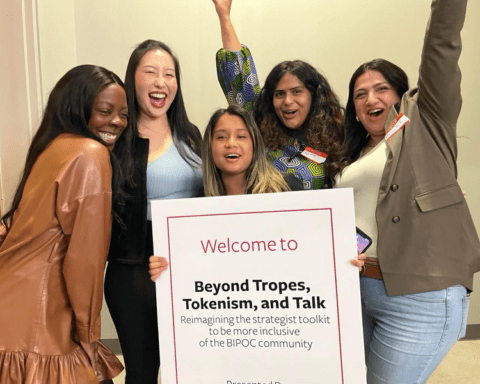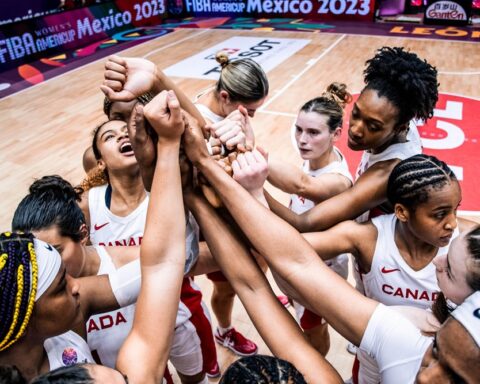Rogers Media Inc. announced earlier this month that it would be replacing daily multi-language newscasts on OMNI Television with half-hour, multi-language current affairs programs instead.
Simultaneously the Rogers media giant cut 110 jobs, the majority of which came from its OMNI multicultural stations’ television operations.
The announcement naturally sparked great discussion amongst various circles. Here at New Canadian Media, we brought together three marketing experts who have followed OMNI’s trajectory for a long time to weigh in on this question: What went wrong with OMNI and what does this mean for multicultural programming in Canada?
 An Inconsistent Viewership // by George Kan in Vancouver
An Inconsistent Viewership // by George Kan in Vancouver
When Rogers first acquired OMNI, it must have seen it as a great opportunity. The station had the resources, but did Rogers make the necessary investments to make the channel thrive?
Look at one of OMNI’s biggest competitors in the Chinese television market: Fairchild. That company succeeded in digging deep and understanding what its viewership wanted.
As a result, Fairchild broadcasted Chinese programs that captured its target audience’s attention and in return, advertising revenues. Whereas OMNI used programs such as “The Simpsons” and “Late Show with David Letterman” to keep its ratings up, but ignored what the ethnic viewers wanted.
That was the beginning of a vicious cycle.
How is “The Simpsons” a relevant program to a multicultural audience? OMNI failed to attract the ethnic audience, and diverted its attention to the general Canadian audience.
The daily news was also the most effective form of interaction with the community; without it, OMNI has lost the spirit of cultural connection.
As a result, this inconsistent viewership failed to attract revenues from advertisers that want their message to reach a specific ethnic market. Subsequently, profitability plummeted, leading to the disincentive for Rogers to invest in high quality programs for OMNI, and thus, failing to interest its intended viewers.
Granted, OMNI must abide by restrictions from the CRTC, but surely it could have made its programs more relevant.
The most watched programs during prime time are Punjabi, Cantonese and Mandarin daily news. From an advertisers’ perspective, those were the most attractive timeslots that advertising agencies would recommend to their clients. The daily news was also the most effective form of interaction with the community; without it, OMNI has lost the spirit of cultural connection.
Now that OMNI has removed these essential programs that appealed to the largest audience, where will they go from here?
This channel has failed to attract viewers for the past years, how can it be so sure that this change that rendered 110 people unemployed, was the best decision?
Is removing multicultural news from the daily cycle, and depriving these ethnic groups of the right to watch daily news in their native language on the only free multicultural channel offered, a viable first step? Has Rogers given up on OMNI?
George Kan is a Partner and the Creative Director of Vancouver based multicultural advertising agency, Captus Advertising. He has worked on world renowned brands such as Nike, Shell Oil, Nestle, Citibank, Rolex and Ford Motors. In 2009, George and his partner decided to start up their own agency and established Captus Advertising. In five short years, Captus is now one of Canada’s most awarded creative multicultural agencies.
 Representing the ‘Ethnic Aisle’ // by Robin Brown in Toronto
Representing the ‘Ethnic Aisle’ // by Robin Brown in Toronto
The challenge for OMNI is that its design is not suited to the increasingly empowered multicultural audience.
In retail, an “ethnic aisle” with a mix of ethnic produce used to be appropriate, but now does not meet the needs of shoppers who already have access to more and better from ethnic stores.
We have consistently seen other cultural targeted channels such as Fairchild, Asian Television Network, and even streaming offerings like iTalkBB, as being more effective for advertisers.
To some extent OMNI represents the “ethnic aisle”. Viewers have access to a much wider range of culturally targeted content. Additional to this, newcomers are less language dependent so they can pick and choose their content within and outside of their ethnic media.
And the fact is that money talks.
At Environics we recently analyzed awareness of Chinese New Year advertising campaigns for one of our clients with and without OMNI in the mix. There was no increase in awareness due to the addition of OMNI alongside Fairchild and other culturally targeted channels.
We have consistently seen other cultural targeted channels such as Fairchild, Asian Television Network, and even streaming offerings like iTalkBB, as being more effective for advertisers.
Robin Brown is Senior Vice-President, Consumer Insights at Environics Research Group, a research and consulting firm and co-author of the book “Migration Nation: A Practical Guide to Doing Business in Globalized Canada.”
 OMNI: Presence, Then Silence, Then Absence // by Gavin Barrett in Toronto
OMNI: Presence, Then Silence, Then Absence // by Gavin Barrett in Toronto
There are inherent dangers and risks in launching an ethnic channel or publication. In recent times, we have seen both new players and well-established ones ride into the sunset.
Mehndi TV made a comet-like appearance, flashed across our airwaves for a year, only to fade to black. That was a couple of years ago. It has since appeared in another constellation – on the website unpromisingly named Channel Zero.
Multimedia Nova, a publishing group whose newspapers included the 59-year-old Italian Newspaper Corriere Canadese, shut its presses in 2013.
The 53-year-old Canadian Jewish News shut down its print edition and went all digital in 2013.
But the OMNI announcement makes me wonder if something else is at play here.
It is tempting to limit or define foreign cultures by language just because it makes it more convenient to sell airtime or diapers or haircuts or oranges, but this is both facile and dangerous.
I wonder, for instance, if OMNI was “too ethnic”? In other words, did OMNI take an oversimplified content strategy with the ethnic consumer?
Allow me to explain. There is too often a rush to dumb down our understanding of Canada’s multicultural markets.
Too often, ethnic consumer targets are rendered into shapeless homogenized blobs that bear no resemblance to what is actually a much more finely nuanced, multi-faceted cultural reality. A content or advertising strategy created for these fictional language-centric monoliths produces fuzzy, undefined work that has little appeal or relevance.
It is tempting to limit or define foreign cultures by language just because it makes it more convenient to sell airtime or diapers or haircuts or oranges, but this is both facile and dangerous.
After all, there are cultures united by language and separated by geography and, equally, cultures separated by language and united by geography. Add religion and history and we start to see an incredibly complex mosaic. There is rich irony in the mental visual of senior OMNI TV executives closing their eyes to this.
A Chinese citizen in China is not the same person as a Chinese Canadian citizen in Canada. Our experience alters us.
Worse, this oversimplification is often combined with an attempt to keep new Canadians in their ethnic boxes. To do this is to deny the powerful narrative contained in the immigrant journey and to forget the impact that becoming Canadian has on the immigrant’s life. A Chinese citizen in China is not the same person as a Chinese Canadian citizen in Canada. Our experience alters us.
The words over the Queen Street viaduct in Toronto remind us, “The river I step in is not the river I stand in.” As we make our way in Canada, Canada changes us. And we change Canada. This is powerful stuff that is rich territory for original content.
I think OMNI could have significantly helped its cause by taking a leaf out of CBC’s book by using more original Canadian content in the official languages to target the multicultural Canadian viewer. And, by that, I mean the Canadian viewer.
I look at CBC’s Hocket Night in Canada play-by-play sportscasts in Punjabi and Mandarin and shows like “Little Mosque on the Prairie” – very diverse programming that reflects a very diverse reality – and I ask why couldn’t we see more of that?
We have an amazing talent pool in multicultural Canada. There’s a multicultural renaissance going on. Right now, the Tarragon Theatre is staging an Indo-Canadian version of Shakespeare’s Much Ado and it’s been getting rave reviews.
We have writers like M G Vassanji, Michael Ondaatje, Rohinton Mistry and Vincent Lam. We have comedians like Russell Peters, Mikey Bustos, Ron Josol and Sugar Sammy. Bands like Delhi 2 Dublin, artists like Ritesh Das. This is not a country with a shortage of multicultural content.
Rogers is a sophisticated media-and-message convergence advocate and a successful player in that game, so I find it difficult to accept that it is allowing its investment to fail so easily.
I feel OMNI really had a good thing going with its newscasts, but I was shocked when the station dropped the South Asian news in English a couple of years ago. Almost every South Asian I knew watched it.
I felt then that it had stepped off an edge and was suspended momentarily in mid-air. Now it plummets.
Gavin Barrett is Founding Partner, Creative Director and Ideawallah at Barrett and Welsh. As writer, art director and VP/creative director, Gavin has worked for Lintas and DY&R Rediffusion in Bombay, India; JWT and Leo Burnett in Hong Kong; and Maclaren McCann and at Vickers & Benson/Arnold Worldwide. He co-founded barrettandwelsh in 2003.




